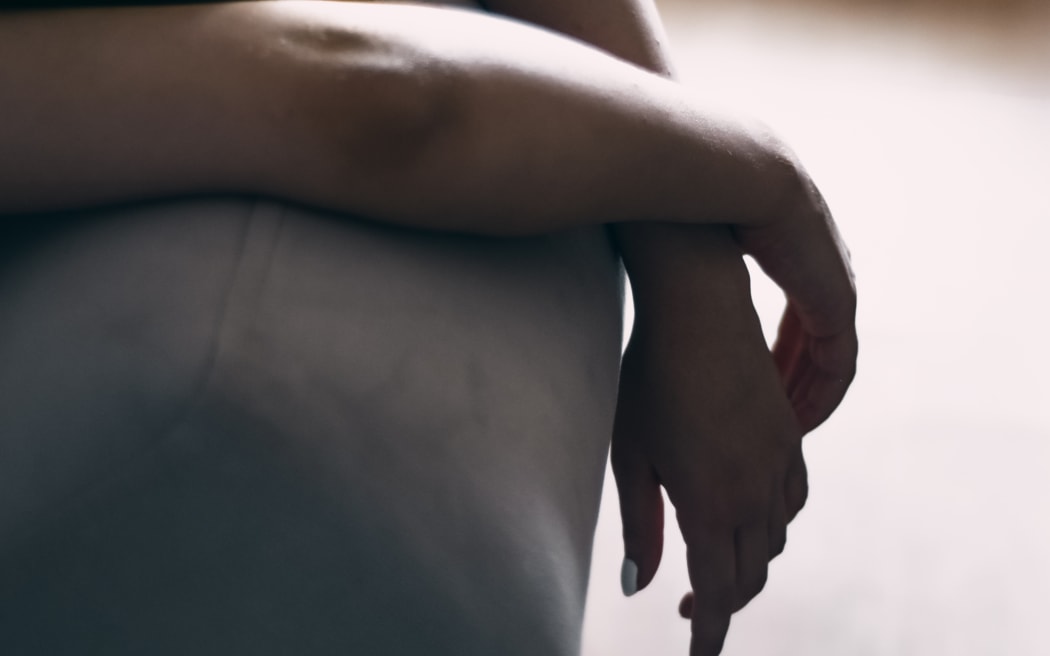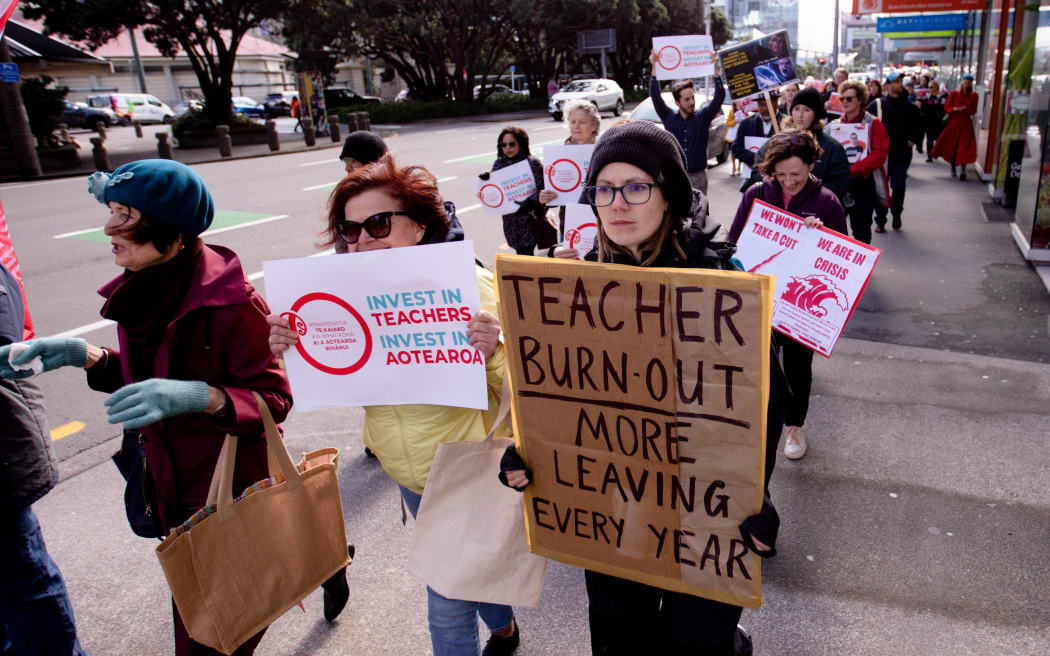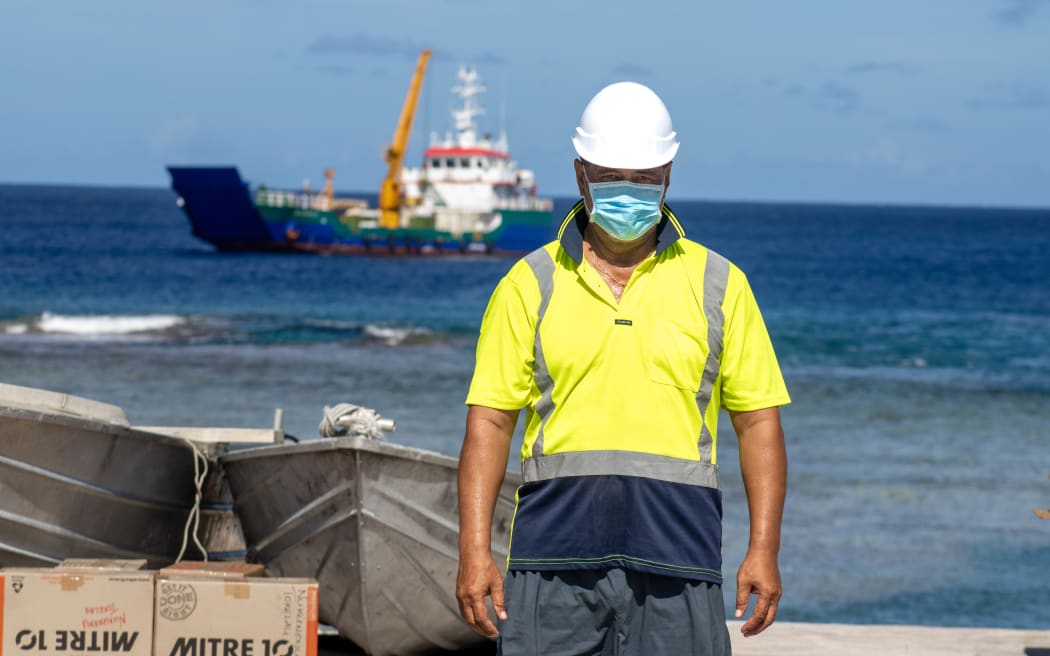By rnz.co.nz
‘Oku taupotu ‘i lalo ha fakamatala fakaTonga
Long Covid and ME/CFS (formerly known as Chronic Fatigue Syndrome) are effectively the same illness, according to a University of Otago researcher.

Emeritus Professor Warren Tate leads a team at the University of Otago’s Department of Biochemistry that has been examining the similarities in the molecular patterns of long Covid and ME/CFS patients.
Tate told Nine to Noon these similarities were so great that it was “a travesty of justice” that people with the illnesses were treated differently.
“When you get a chronic inflammatory response, which is ongoing, that leads to a cascade of effects which involves the brain’s immune system and inflammatory system and the central nervous system and so then the brain starts to misfunction in terms of its regulation of body physiology.
“What we see with both ME/CFS and long COVID, there’s about over 100 symptoms have been reported by patients and that reflects the fact that the brain and central nervous system are not controlling physiology properly. And amazingly, most of those symptoms are the same in both long Covid and ME/CFS. That’s why I see these are really just names given to the same response in the susceptible people where their immune inflammatory system becomes chronic.”
In 2022, the Association of New Zealand Myalgic Encephalopathy Societies (ANZMES) submitted a 6400-strong petition to Parliament, calling for ME/CFS to be reclassified from a chronic illness to a disability, to help people access benefits and services.
Since then, nothing has happened. ANZMES president Fiona Charlton told Kathryn Ryan the system was not working for people with ME/CFS.
“ME/CFS fits the definition of disability, but not the criteria to access disability support services. And those same support services, while they are available under long-term conditions through the health system. People with ME do not fit the criteria to access them.”
While there were minor differences between how the United Nations, the World Health Organisation and the New Zealand government defined ‘disability’ – Charlton said they all agreed it was “an impairment, be it physical, intellectual, or sensory, that lasts more than six months and limits the ability to carry out day to day activities”.
To access disability support services in New Zealand, the criteria stated that you had to have an intellectual impairment or be on the autism spectrum, Charlton said.
“So, people with ME don’t fit into that. But they do fit into the disability definition, where they have a physical sensory impairment, and for many people that’s lifelong, so obviously is lasting more than six months. And it significantly limits the ability to carry out activities.”
Charlton said a diagnosis of ME/CFS required the person to have lost 50 percent of their usual functionality.
“A lot of us are not able to work, are not able to even leave the house, some are not even able to leave their beds.”
Tom Harris recently got back on his feet after his second bout of ME/CFS. The Christchurch musician’s first experience of the illness was triggered by a gastro bug he picked up at the age of 18, while on his OE.
“I recovered [from the gastro bug], and basically from then until I was 25… I just was tired.”
Harris managed to study and carry on with life to a certain extent, but the constant tiredness made everything hard work. He did not have the energy to meet people or make friends.
“If you picture you’re coming down with a cold, that kind of feeling, you just want to curl up and go home. It was like that for seven years essentially. And while I tried to make the most of it and push it on, it was just incredibly hard.”
Harris then enjoyed “a wonderful five years” in remission where his health recovered.
“I spent a lot of that time playing in a high energy dance band which is the opposite end of the spectrum from ME/CFS, staying in bed.”
A couple of years ago, Harris suffered an intense relapse, where he spent around 18 months unwell. He spent 90 percent of the time sitting in a chair in a darkened room, unable to cope with normal sunlight levels.
Harris said post-exertional malaise (PEM) was crippling for ME/CFS sufferers.
One day he went for a 10-minute walk on the beach because “I was feeling risky”.
“And because of that I had to spend two days in bed. I couldn’t get out of bed just as if I’d run a ridiculous marathon.”
Harris has been in remission from his second bout of ME/CFS since January. He he was grateful for the support of his parents, who he lived with, and for having a flexible job as a music teacher that enabled him to manage his workload. Support from online ME/CFS and long Covid groups was also helpful, but Harris said “sick people caring for sick people” was not the answer.
“We’re having to fight our own battles.”
Tate said changing the definition of ME/CFS to a disability would give sufferers a legitimacy and status that they currently lack. The debilitating symptoms restricted people with the illness from engaging in daily life, so the illness was often viewed as ‘made up’.
“That’s what people have been having to put up with and to fight and so having something that says, ‘this is a disability’ gives them a status. They might not like having that status, but a status which means the medical community and the social services, take them more seriously.”
Tate said more education of the medical community about the international best evidence about these diseases was needed, so people with them could be assured of the same standards of care across the country.
“My concern is that… there’s quite a lot of interests and excitement about doing something for long Covid, but a lukewarm response for connecting ME/CFS people in with it, when they’re basically the same disease. They’re just the response of the susceptible persons bodies to these external stresses. That is a travesty of justice. We have to make sure this consistent treatment of people are suffering from this kind of illness.”
FAKAMATALA FAKATONGA
Oku tatau pe ‘a e Koviti taungaloloa mo e ME/CFS pe ne ‘iloa ki mu’a ko e (formerly known as Chronic Fatigue Syndrome) fakatatau ki ha lau ‘a ha taha fakatotolo fakaako mei he Univesiti ‘o Otago.
Oku tataki ‘e Emeritus Professor Warren Tate ha timi mei he Otago’s Department of Biochemistry a ia oku nau sivi ‘a e ngaahi mata tatau ‘i he peteni fakamolekiula ‘o e kau puke he Koviti taungaloloa mo e ME/CFS.
Ne fakaha ‘e Tate ki he Nine to Noon oku fu’u lahi ‘a e mata tatau ko eni pea ‘oku fakaoli ai ‘a e fakamaau totonu ‘i hono faito’o kehekehe ‘a e kakai ‘oku puke he ongo mahaki ni.
I he 2022 na’e fakahu atu ai ha tohi tangi ‘e ha toko 6400 mei he Association of New Zealand Myalgic Encephalopathy Societies (ANZMES) submitted a 6400 ki Fale Alea o ui ki he ME/CFS ke fakakalasi ia ko e disability, koeuhi ke lava e kakai ‘oku puke ai ‘o ma’u ‘a e penefiti mo e ngaahi sevesi ‘o e disability.
Talu mei ai, ‘ikai pe ha me’a ‘e hoko. Na’e fakaha ‘e he palesiteni ‘o e ANZMES Fiona Charlton kia Kathryn Ryan oku ‘ikai ngaue ‘a e sisitemi ki he kakai ‘oku nau puke he ME/CFS.
Lolotonga ‘oku ‘i ai ‘a e kehekehe si’i ‘i hono faka’uhinga’i ‘e he Pule’anga Fakatahataha mo e Kautaha Mo’ui ‘a Mamani ‘a e lea disability – ne pehe ‘e Charlton ne nau loto taha ko ha mamatea tatau pe fakaesino, faka’atamai pe fakaeongo ‘oku tolonga laka hake ‘i ha mahino ‘e ono pea ‘oku ne fakangatangata ‘a e malava ke fakahoko ‘a e ngaahi ngaue faka’aho.
Oku tuhu’i mai ‘e he kulaitelia’ kuopau ke ‘i ai hao mamatea faka’atamai pe ‘otisimi kae lava k eke toki ma’u ‘a e ngaahi sevesi ‘oku ‘atā ki he disability.
Na’e pehe ‘e Charlton ko ha faito’o ‘o e ME/CFS ‘e fiema’u ‘a e taha ko ia ke mole meiate ia ‘a e peseta ‘e 50 ‘o e angamaheni ‘a e ngaue ‘a hono sino.
Ko e tokolahi taha ‘o kimautolu ‘oku ‘ikai lava ngaue pe mavahe mei he fale pea ni’ihi ‘ikai lava mavahe mei honau mohenga’.






